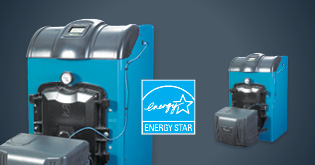- My Account:
- Sign In
- Register
- Make Payment
Propane and natural gas: How do they compare as home fuels?

Before we compare propane and natural gas benefits, it’s important to understand exactly what each one is:
Propane.
Is part of “raw” natural gas but separated from the other natural gas components during processing at most natural gas facilities and sold to propane companies after this process.
Natural gas.
Comprises multiple gases: Propane, butane, ethane, and methane.
To compare both fuels more easily, propane is sold by the gallon but can be converted to the natural gas standard, cubic feet.
Now that we know what the fuels are and the criteria for comparing the benefits of each one, let’s learn more about the pros and cons of using propane vs. natural gas to heat and/or provide your home comforts:
BTU comparison.
One cubic foot of propane = 2,516 BTUs compared to one cubic foot of natural gas = 1,030 BTUs. Propane contains more than twice the energy of natural gas. In one hour, a 100,000 BTU natural gas furnace burns around 97 cubic feet while a propane furnace burns only 40 cubic feet in an hour.
Cost.
If the natural gas price is $15.00 per 1,000 cubic feet, the same $15.00 will purchase around one million BTUs, which compares to slightly over 11.20 gallons of propane. If propane costs $2.50 per gallon, using this as an example, natural gas is the cheaper option.
Energy efficiency.

Since propane delivers more BTUs (per gallon or per cubic foot) and burns less volume per hour than natural gas by a factor of two-to-one, it is an energy-efficient alternative to natural gas for many applications. Depending on price of natural gas (per 1,000 cubic feet), propane could replace natural gas as a source of heating a building, home, or large volume structure. However, when natural gas is cheaper (e.g., under $20 per 1,000 cubic feet), the cost of using it to heat a home can be less costly than propane, even with the efficiency difference.
Going green.
Natural gas is a clean burning greenhouse gas. Propane is not toxic or damaging to the environment, is considered a “green fuel” and is eco-friendly before and after combustion. Both share similar and positive environmentally responsible benefits.
Safety.
Lighter than propane, natural gas dissipates more quickly than propane when released into the atmosphere. So, you could make a claim that natural gas is a little safer than propane which takes a little longer to vanish in the air.
Is it smart to convert from propane to natural gas?
Before making this big decision, you need to weigh up the following important factors:
- The costs of converting all appliances to natural gas.
- Digging up your yard or garden to remove the propane line and put in a natural gas line safely. Removing and disposing of your propane tank.
- With natural gas, there’s no need to schedule a delivery.
- You only pay after you use the natural gas, since there is no fuel stored in a tank for future use.
- During a power outage, most natural gas appliances will still function.
Now you know the facts… what do you do?
Propane clearly delivers more BTUs for your dollars. So, if you like using it in your home, it’s probably smart to keep using propane. If using a clean burning fuel is more important
to you, both share similar benefits, so this decision is more personal rather than one based on any data.
If you have any further questions about propane or natural services or may be considering converting, our team can help answer some questions and make the best decision.
Source: Propane 101





.jpg?sfvrsn=8bd8912d_3)